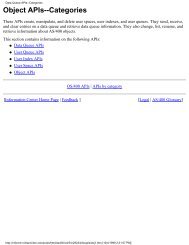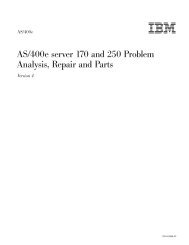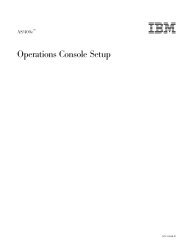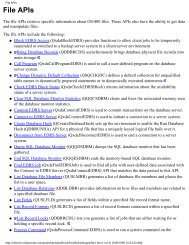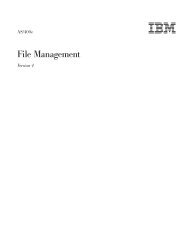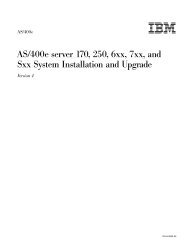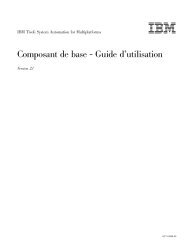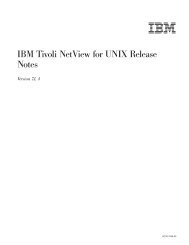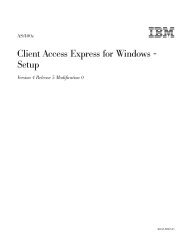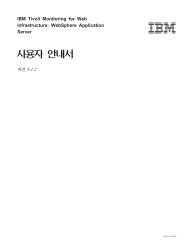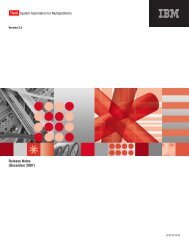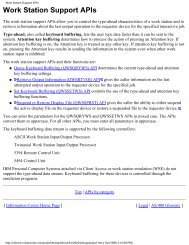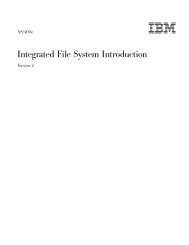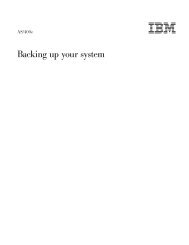Qshell Interpreter (qsh) - FTP Directory Listing - IBM
Qshell Interpreter (qsh) - FTP Directory Listing - IBM
Qshell Interpreter (qsh) - FTP Directory Listing - IBM
You also want an ePaper? Increase the reach of your titles
YUMPU automatically turns print PDFs into web optimized ePapers that Google loves.
Options<br />
Exit Status<br />
-c Only a count of selected lines is written to standard output.<br />
-E Use Extended Regular Expressions (ERE).<br />
-e pattern_list specifies one or more search patterns. Each pattern should be<br />
separated by a newline character.<br />
-F Do not recognize regular expressions.<br />
-f pattern_file specifies a file containing search patterns. Each pattern should<br />
be separated by a newline character.<br />
-h Do not print filename headers.<br />
-i The case of letters is ignored in making comparisons. That is, upper and<br />
lower case are considered identical.<br />
-l Only the names of files containing selected lines are written to standard<br />
output. Pathnames are listed once per file searched. If the standard input is<br />
searched, the pathname “-” is written.<br />
-n Each output line is preceded by its relative line number in the file; each file<br />
starting at line 1. The line number counter is reset for each file processed.<br />
This option is ignored if -c, -l, or-s is specified.<br />
-q Quiet mode where no messages are printed. Only exit status returned.<br />
-s Suppress the error messages ordinarily written for nonexistent or<br />
unreadable files. Other messages are not suppressed.<br />
-v Selected lines are those not matching the specified patterns.<br />
-w The expression is searched for as a whole word (as if surrounded by “[[::]]”).<br />
-x Match line if pattern is the only thing on the line. This option takes<br />
precedence over -w. If both are specified, -w is ignored.<br />
-y Ignore case (same as -i).<br />
If no file arguments are specified, the standard input is used.<br />
v 0 One or more lines were selected<br />
v 1 No lines were selected<br />
v >1 An error occurred.<br />
Extended Regular Expressions (ERE)<br />
The following characters are interpreted by grep:<br />
$ Align the match from the end of the line.<br />
| Align the match from the beginning of the line. (NOTE: This character may<br />
not work correctly from a 5250 terminal session.)<br />
| Add another pattern (see example below).<br />
? Match 1 or less sequential repetitions of the pattern.<br />
+ Match 1 or more sequential repetitions of the pattern.<br />
* Match 0 or more sequential repetitions of the pattern.<br />
Chapter 4. Utilities 39



